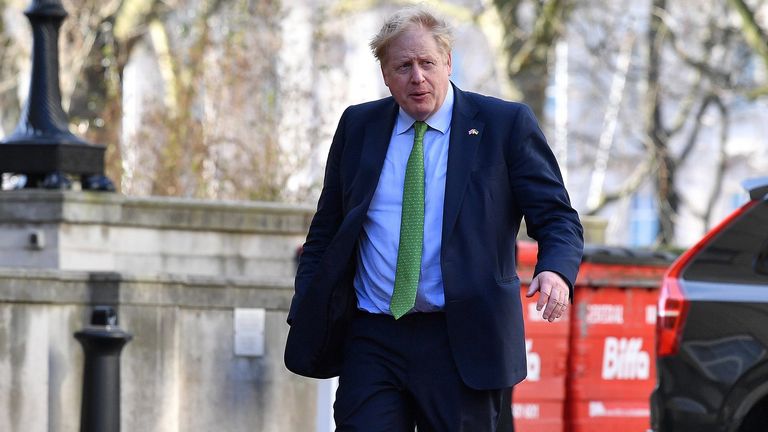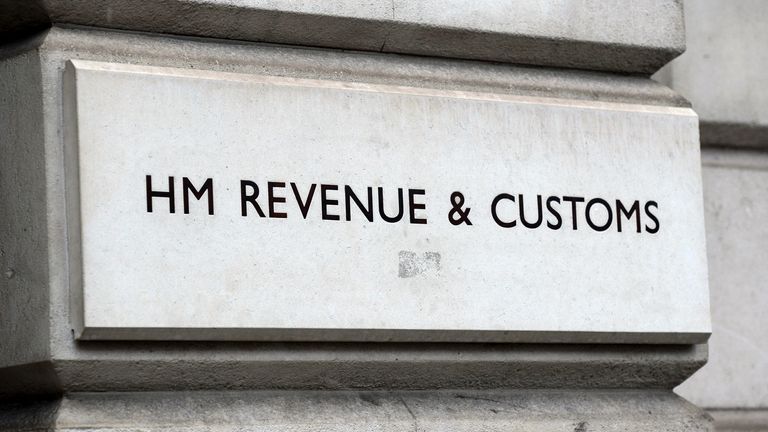The government must “get a grip” on the use of WhatsApp by ministers, special advisers and officials to help dispel the impression of “sleaze and corruption”, according to a think-tank.
Up to 31% of officials in some departments have the app installed on their work phones, a report from the Institute for Government (IfG) said.
It is now used widely in Westminster from the prime minister discussing the pandemic with aides to MPs plotting rebellions, the think-tank said.
But ministers and advisers should be aware that its use “can have damaging consequences – political and legal – and that basic good practice is in their own interest”, it added.
It comes as the High Court has been hearing claims ministers are breaching the law by failing to follow policies by deleting messages and using private accounts for government business.
The report, which also makes reference to the use of other apps such as Signal and Telegram, comes a day after details of the PM’s use of WhatsApp emerged in a High Court hearing.
“The government needs to get a grip on how these kinds of apps are being used in government,” the think-tank said.
“Ensuring that there is a consistent, managed approach to their use will mean that ministers and officials can be reassured that the benefits of these apps outweigh their disadvantages.
“It will also help ministers tackle the implications of sleaze and corruption that have dogged the Johnson government and accompany any story around the use of WhatsApp.”
IfG associate director and report author Tim Durrant said: “WhatsApp is widely used in government, with senior ministers including the prime minister known to be fans.
“But while it brings many benefits, its use risks decisions being made without all the relevant information and can lead to poor record-keeping, which harms transparency and accountability.”
Departments vary in their approach to WhatsApp – used by 1,704 ministers, special advisers and civil servants in the Cabinet Office and 763 in the business department, but banned for official business by HM Revenue and Customs and the Department for Environment, Food and Rural Affairs.
The report said the app’s use was “changing the way politicians and others debate, take decisions and build (or dismantle) relationships with each other” but that there had been “little attention paid to how it affects the way government works”.
It said the use of such technology could be of value of ministers and officials “who tend to be short on time” and did not call for a ban of the use of WhatsApp in government.
But the report said the publication of conversations between Boris Johnson and his former chief adviser Dominic Cummings on the app, and revelations about the PM’s previous phone number being widely known and used to get direct access to him, revealed some of the risks of its use.
It said the use of brief messages shorn of detail and nuance were no substitute for formal submissions and presentations and risked resulting in poor policy decisions.
The apps also make record keeping and scrutiny more difficult and undermine accountability and transparency about official information, the report found.
It recommended that ministers, advisers and officials should not use personal phones “for substantive government business” and that departments need to manage WhatsApp properly “so information gets to all the relevant people”.
The report also called for measures to ensure relevant messages are kept for the long term and that the use of the app “does not hinder transparency or scrutiny”.
It comes a day after the High Court heard, in a case brought by campaigners, that there were “many instances” of key government decisions made over messaging services being unlawfully deleted.
The court heard that the prime minister has used WhatsApp as a tool to communicate “critical decisions”.
Downing Street said that conversations around government business could be conducted using such apps “as long as any requisite information is provided to private office and passed on”.













